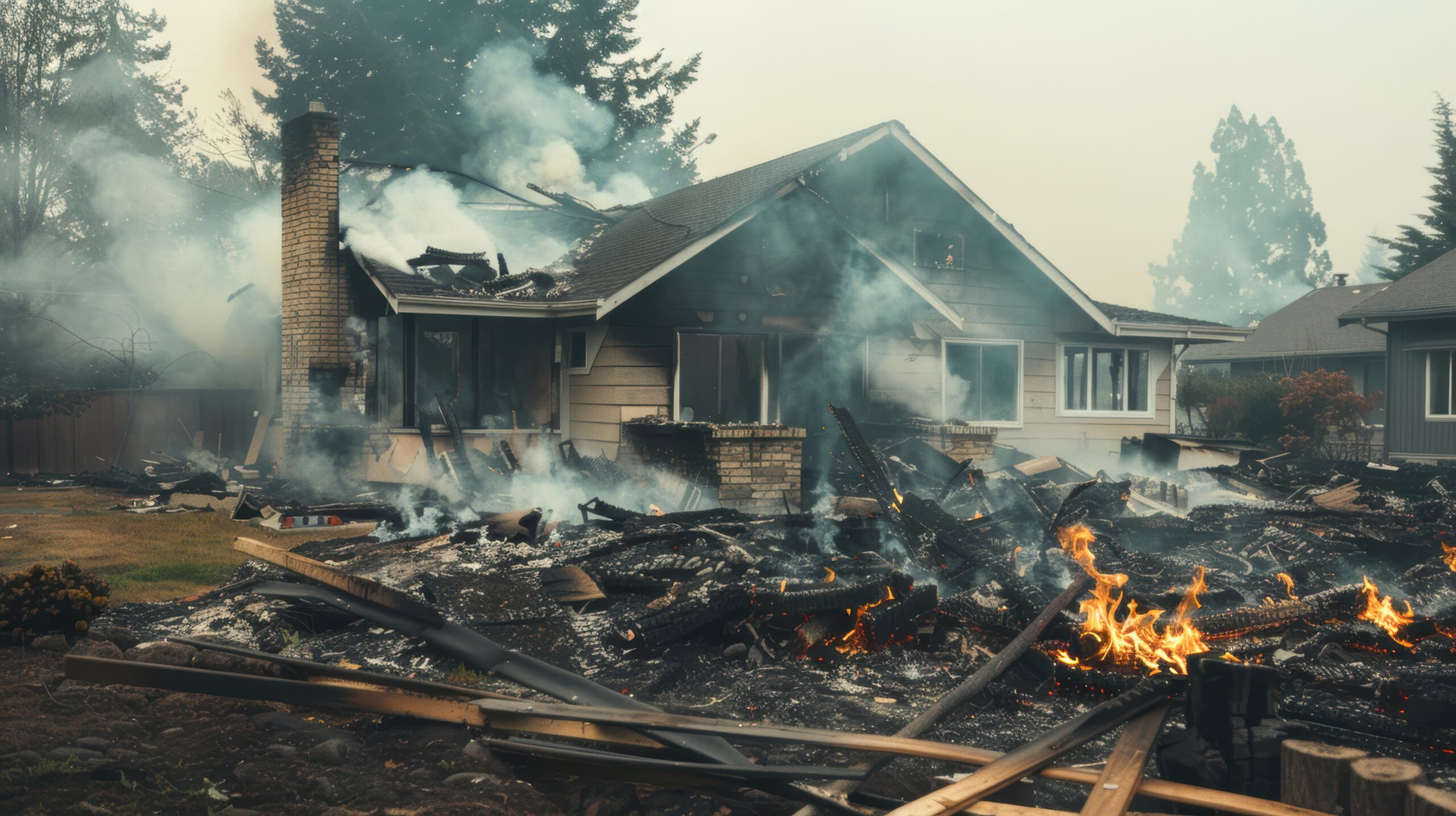Understanding the Reality of Fire and Water Damage
For most homeowners, fire and water damage feel like distant possibilities—something that happens to other people, not to them. But after years in the disaster restoration business, I can tell you that these emergencies are more common than you’d think. Every year, thousands of families face the devastation of house fires, flooding, and other disasters, often unprepared for the aftermath.
Having worked in this field for over a decade, I’ve seen the mistakes homeowners make and the things they wish they had known before disaster struck. If there’s one thing I’ve learned, it’s that knowledge and preparation can make all the difference. Here are the key lessons every homeowner should understand about fire and water damage.
Fire Damage: Prevention and Recovery
Common Causes of House Fires
House fires don’t just happen—they have causes. The most common sources include:
- Kitchen accidents – Unattended cooking is one of the leading causes of house fires. Grease fires, in particular, spread quickly and can be deadly.
- Electrical issues – Faulty wiring, overloaded outlets, and outdated electrical systems can ignite a fire inside your walls before you even realize there’s a problem.
- Heating equipment – Space heaters, fireplaces, and furnaces can spark fires if they’re not maintained properly.
- Candles and smoking materials – An unattended candle or improperly discarded cigarette can be all it takes to set a home ablaze.
What to Do After a Fire
A house fire is overwhelming, but knowing what to do next can help you regain control:
- Ensure Safety First – Once everyone is safe and the fire is out, do not re-enter your home until fire officials say it’s safe.
- Contact Your Insurance Company – The sooner you start your claim, the better. Take photos and videos of the damage before making any changes.
- Call a Fire Damage Restoration Expert – Professionals can assess structural damage, remove smoke odors, and help restore your home to a livable condition.
- Secure Your Property – If your home is exposed to the elements or looters, boarding up windows and doors is crucial. This is why we started 911 Boardup, to help families protect their homes in the immediate aftermath of a fire.
How to Reduce Fire Risks
Prevention is always better than restoration. Here are some simple ways to reduce your fire risk:
- Install smoke detectors in every bedroom and test them monthly.
- Never leave cooking food unattended.
- Avoid overloading electrical outlets.
- Keep flammable items away from heat sources.
- Have an escape plan in place and practice it with your family.
Water Damage: More Destructive Than You Think
How Water Damage Happens
Water may not seem as threatening as fire, but it can be just as destructive, if not worse. Some common sources of water damage include:
- Burst pipes – Freezing temperatures, age, or high water pressure can cause pipes to rupture.
- Roof leaks – Damaged shingles, clogged gutters, or severe weather can lead to leaks that cause interior damage.
- Flooding – Heavy rainfall, hurricanes, or plumbing failures can lead to standing water in basements or living spaces.
- Appliance failures – A broken washing machine hose or water heater leak can go unnoticed until significant damage has occurred.
What to Do After Water Damage
When dealing with water damage, speed is everything. The longer water sits, the worse the damage becomes. Here’s what to do:
- Shut Off the Water Source – If the water is coming from a plumbing issue, turn off your home’s main water valve.
- Call a Restoration Professional Immediately – Mold can start growing in as little as 24 hours. Professional drying and dehumidifying equipment can prevent long-term issues.
- Document Everything for Insurance – Take photos and videos before starting any cleanup.
- Remove Excess Water – If it’s safe, start drying out affected areas by mopping up water and using fans.
- Check for Mold Growth – If you notice musty odors or discoloration on walls and ceilings, mold remediation may be necessary.
Preventing Water Damage
While you can’t control the weather, you can take steps to minimize your home’s risk of water damage:
- Inspect and maintain your roof regularly.
- Clean gutters and downspouts to prevent blockages.
- Install a sump pump in flood-prone areas.
- Check pipes for leaks and insulate them in winter.
- Know where your main water shutoff valve is located.
Why Professional Restoration Matters
Many homeowners try to handle fire and water damage cleanup on their own, but this can lead to bigger problems down the road. Improper cleaning techniques can leave behind smoke residue, mold growth, and structural weaknesses. Restoration professionals have the tools and expertise to handle the damage correctly and ensure your home is safe to live in again.
Technology is also improving the way we restore homes. Drones, AI-powered damage assessment, and advanced drying techniques are making restoration faster and more effective than ever. The goal is not just to fix what’s broken but to make your home safer and more resilient against future disasters.
Be Prepared, Not Just Reactive
If there’s one thing I’ve learned in this business, it’s that preparation is everything. No one expects to experience a house fire or a flood, but it happens more often than people think. Knowing how to prevent these disasters and understanding what to do if they occur can save you time, money, and stress.
Disaster restoration isn’t just about fixing damage—it’s about helping people rebuild their lives. That’s why I do what I do. My goal is to educate homeowners, provide immediate assistance when disaster strikes, and make sure that every family has the knowledge and tools they need to protect their home.
Stay safe, stay prepared, and remember—knowledge is your best defense against disaster.
